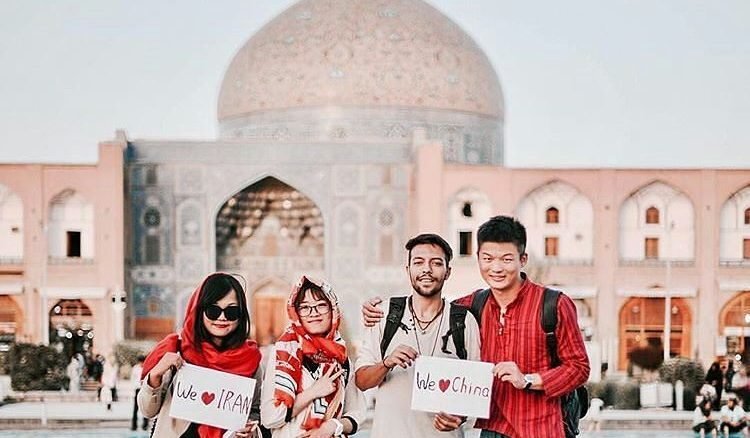Isfahan Province’s Tourism Department has recently formed a task force to look for ways to encourage and attract more travelers from China.
Iranian and Chinese nationals pose for a photo in the UNESCO-registered Imam Square of Isfahan, central Iran.
The picture depicts Safavid-era Sheikh Lotfollah Mosque in the background.
“A task force was formally launched to develop tourism ties between Isfahan and China, which has [some] 130 million outbound tourists per annum,” Fars quoted Mohsen Yarmohammadian, a provincial official, as saying on Sunday.
The scheme is pursued to explore new tourism markets and to widen engagement with Asian countries, he added.
“For the first stage, several marketing seminars have been arranged to be held in five major cities in China, including Beijing, Shanghai and Guangzhou, in a bid to introduce Isfahan,” said Korush Vakili who is a tourism marketing official.
“Chinse travel businesses will be identified and invited to the seminars in close collaborations with the Iranian Embassy and its consulates in various Chinese cities,” Vakili said.
The number of Chinese tourists visiting Iran in 2017 fell short of expectations as just 80,000 of the total 100,000,000 outbound Chinese passengers traveled to Iran last year.
Insignificant numbers of Chinese restaurants, Chinese-language guides or even inappropriate lodging facilities are deemed to be among the main reasons behind the low number of Chinese tourist arrivals.
Some believe that part of this failure comes from inside Iran, because Chinese restaurants are scanty across the country while the cuisine is of high importance for majority of the Chinese people.
In 2017, over 100 million Chinese tourists traveled abroad, with Japan, Hong Kong, the U.S., South Korea, Thailand, Taiwan, Singapore, Vietnam, and France among their top destinations.
Isfahan is Iran’s top tourist destination for good reasons. Its profusion of tree-lined boulevards, Persian gardens and important Islamic buildings gives it a visual appeal unmatched by any other Iranian city. In addition, Isfahan’s many artisans underpin its reputation as a living museum of traditional culture.
